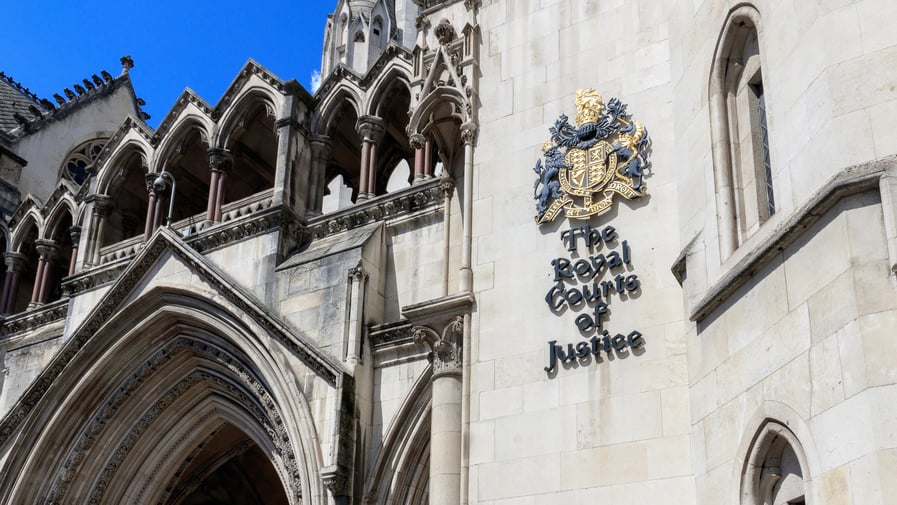This month’s top stories:
- Hong Kong customs officials arrest seven suspects in USD 1.8 billion money laundering case;
- High Court upholds freezing order on Azerbaijani politician’s London properties worth over GBP 50 million; and
- US sanctions Zimbabwean president and associates over corruption and human rights abuses.
Middle east and north africa
Saudi Arabia: Two British executives acquitted of bribing Saudi Arabian officials over defence contracts
On 6 March, a jury at the Southwark Crown Court in London acquitted two British executives of corruption. Jeffrey Cook, a former managing director of British Airbus subsidiary GPT Special Project Management Ltd (GPT), and John Mason, a former financial officer at a GPT subcontractor, were accused by the UK’s Serious Fraud Office of bribing Saudi Arabian officials to secure defence contracts from the Saudi Arabian National Guard. The bribes reportedly amounted to approximately GBP 10 million. Cook and Mason were acquitted of corruption after the court recognised that the payments had been authorised by the UK and Saudi Arabian governments.
Asia Pacific
Hong Kong: Seven suspects arrested in USD 1.8 billion money laundering case
On 22 and 23 February, two years after Russia’s full-scale invasion of Ukraine and one week after the death of On 16 February, Hong Kong customs officials arrested seven individuals in connection with an HKD 14 billion (USD 1.8 billion) money laundering case, reportedly the largest such case in Hong Kong’s history. The suspects, all Hong Kong residents aged between 23 and 74, were allegedly part of a transnational crime syndicate which engaged in online scams in India and the sale of electronics and rare gems including diamonds to launder funds. Assets worth HKD 165 million (USD 21 million), including five properties and three commercial units, were seized as part of the operation.
India: Opposition leader arrested over corruption allegation
On 21 March, India’s financial crime agency arrested Arvind Kejriwal, chief minister of Delhi and leader of the opposition Aam Aadmi Party (AAP), for his alleged connection to the "liquor scam" scandal – in which top AAP members had allegedly accepted bribes worth USD 12 million from liquor contractors to implement a now-scrapped policy in Delhi that gave an undue advantage to private liquor retailers. Kejriwal, accused of being the "key conspirator" of the scheme, has rejected the accusation and claimed that he has been politically targeted by the ruling Bharatiya Janata Party ahead of the upcoming general election this year. As of March 2024, dozens of other AAP members have been detained in connection with the "liquor scam" case.
Singapore: New charges filed against former transport minister
On 25 March, authorities filed eight new charges against former Singaporean transport minister Subramaniam Iswaran. According to prosecutors, Iswaran obtained "valuable items", such as bottles of whisky and golf clubs, as a public servant from an executive at construction firm Lum Kok Seng between 2021 and 2022. Iswaran has pleaded not guilty to these charges, in addition to 27 others – including corruption, receiving gifts as a public servant, and obstructing the course of justice – in another criminal case in which he had allegedly taken bribes from Malaysian property tycoon Ong Beng Seng.
Sub-Saharan africa
Zimbabwe: US sanctions Zimbabwean president and associates over corruption and human rights abuses
On 4 March, the US Department of the Treasury’s Office of Foreign Asset Control (OFAC) sanctioned eleven individuals and three businesses for alleged involvement in corruption and human rights abuses. Among those sanctioned are Zimbabwe’s President Emmerson Mnangagwa; Auxillia Mnangagwa, the first lady of Zimbabwe; Kudakwashe Regimond Tagwirei, a Zimbabwean businessman and close ally of Mnangagwa; Sakunda Holdings, a Zimbabwe-incorporated holding company owned by Tagwirei, which is alleged to have facilitated state corruption; and Zimbabwe’s Vice President Constantino Chiwenga, who is alleged to have facilitated human rights abuses by Zimbabwe’s security forces. The new sanctions instituted by OFAC under the Global Magnitsky Sanctions Programme replace the previous sanctions regime against Zimbabwe (which was established by former US President George W. Bush in 2003) although OFAC has indicated that, pending future investigations or enforcement, action under the old regime may still be carried out.
South Africa: Arrest warrant on fraud charges issued for former Steinhoff CEO
On 20 March, an arrest warrant on charges of fraud was issued for Markus Jooste, the former CEO (2000-2017) of Steinhoff International, a South Africa-incorporated global retail conglomerate. Jooste had been under investigation in South Africa since being accused in 2017 of publishing false and misleading financial statements, which led to significant losses of over ZAR 100 billion (USD 5.2 billion). Following the allegations, Jooste resigned as CEO but denied that he was involved in any accounting irregularities at Steinhoff. On 20 March, Jooste was also fined ZAR 475 million (USD 25.2 million) by the Financial Sector Conduct Authority (FSCA), South Africa’s financial sector regulator, for accounting fraud. Jooste was informed of the arrest warrant issued against him but died on the morning of 21 March before he could be arrested. The FSCA has indicated that it will continue to take action against other former Steinhoff executives implicated in the scandal.
Europe
UK: High Court upholds freezing order on Azerbaijani politician’s London properties worth over GBP 50 million
On 8 March, the High Court of England and Wales upheld a freezing order imposed by the National Crime Agency (NCA), the UK’s serious and organised crime agency, against Javanshir Feyziyev, a sitting member of Azerbaijan’s parliament and co-chair of the EU-Azerbaijan Parliamentary Cooperation Committee. The NCA froze a portfolio of 22 London properties reportedly worth over GBP 50 million that it suspects Feyziyev and his wife of having acquired with the proceeds of crime and corruption. The funds were allegedly laundered through the Azerbaijani Laundromat, a money-laundering scheme that was exposed in 2017. Lawyers for Feyziyev and his wife have strongly denied any wrongdoing, asserting that the couple’s fortune was generated through legitimate businesses and that the NCA’s investigation relates to intermediaries of which the family had no knowledge or control.
AMERICAS
US: Treasury sanctions international business network for raising funds and laundering money for Al-Shabaab
On 11 March, the US Department of the Treasury sanctioned an international network of 16 entities and individuals for their role in raising funds and laundering money for Al-Shabaab, a designated terrorist group affiliated with Al Qaeda and operating largely in Somalia. The individuals and entities – located in the United Arab Emirates, Cyprus, and the Horn of Africa – were accused of raising and laundering millions of dollars through several businesses in the interest of Al-Shabaab. Individuals within this alleged network include influential businesspeople in the region who reportedly provide financial backing to Al-Shabaab. The sanctioned entities and individuals will have all their US assets frozen, and US persons will be barred from working with them.
US: SEC charges investment advisers over misleading AI claims
On 18 March, the US Securities and Exchange Commission charged two investment advisers with making false and misleading statements about their use of artificial intelligence (AI). Toronto-based Delphia Inc and San Francisco-based Global Predictions Inc agreed to pay a combined USD 400,000 in civil penalties to settle the charges that they misled clients regarding their purported use of AI and machine learning. In recent years, US regulators have increased scrutiny of how companies represent their use of AI as such statements can materially impact investors’ decisions. As more investors and investment firms consider using AI tools, the SEC has warned companies against making false statements about their use of AI and machine learning in their investment processes, known as "AI washing".
Russia and CIS
Russia: European Parliament approves rules to harmonise sanctions enforcement in response to circumvention of Russia sanctions
On 12 March, the European Parliament approved new rules to strengthen and harmonise enforcement of EU sanctions across the bloc. The new rules criminalise the circumvention of EU sanctions, and introduce a common definition and a minimum penalty for sanctions violations. The measure was first proposed in December 2023, after recognition that the enforcement of EU-wide sanctions – particularly those against Russian entities and individuals – has been uneven across the bloc, relying on the approach of individual member states. This has led those seeking to evade sanctions to engage in "forum shopping", or the practice of seeking out member states with the weakest enforcement standards. The law has yet to be formally approved by the European Council, following which member states will have one year to transpose it into national legislation.





